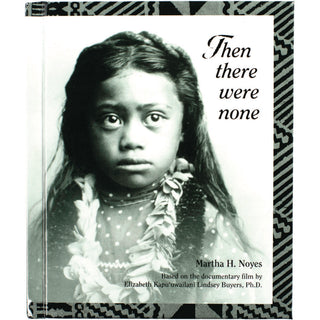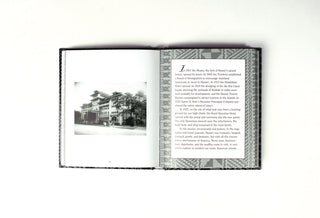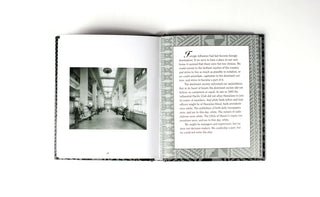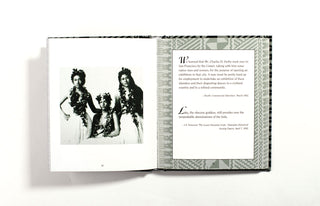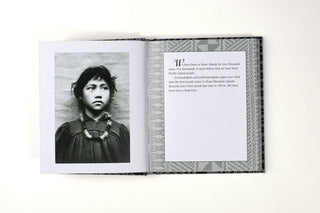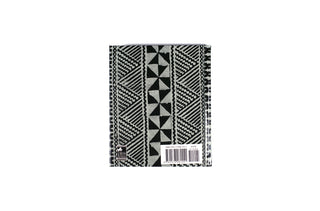Then There Were None, by award-winning Honolulu writer and artist Martha H. Noyes, is a personal and emotional account, in words and pictures, of the effect of Western contact on the Hawaiian population. Drawing from a variety of sources, Noyes chronicles the effects, from the arrival of Captain Cook to the present, of disease, written language, the missionaries, landownership, the overthrow of the monarchy, and the suppression of hula and Hawaiian language, concluding with a look at present-day activism. Photographs vividly contrast tourist images with scenes from the real Hawaiʻi and highlight the contrast between a culture rooted in cosmology and the material culture of those who made Hawaiʻi their own.
_____
Author & Artist Martha H. Noyes has lived in Honolulu since 1965. A graduate of Punahou School, she received her MA from the University of Hawaiʻi at Mānoa. Since 1996, she has been an adjunct instructor at Hawaii Pacific University.
_____
hardcover | 114 pages | 5.25" x 6.25" | B&W
REVIEWS:
“Then There Were None was born from unspoken words, unshed tears and wounded spirits. It is not a tale of blame or victimization. It is an effort to give voice to kupuna who became strangers in their own land—a land that once nourished their dreams and now cradles their bones. Without these stories Hawaii’s history is incomplete.”
—from the foreword by Elizabeth Kapu'uwailani Lindsey Buyers Ph.D.
“... a small but well-designed piece, essentially the script of a film Noyes wrote with Buyers, matched with old photos from the state archives... In spare but poetic English that matches the Hawaiian chants and poetry that are also part of the text, Noyes juxtaposes the photos with bits of history, anecdotes, excerpts from documents, and other revealing information.”
—The Honolulu Advertiser
“The essence of this book is simple. It is a countdown from 400,000 or maybe one million pure-blooded Hawaiians in 1778 to the 5,000 remaining today... This very small book, taken as it is intended, is one of the most powerful statements of what it means to be Hawaiian that you will ever have in your home, unless you have a parade of Hawaiian families and ghosts around your dinner table.”
—Maui Weekly
Then There Were None, by award-winning Honolulu writer and artist Martha H. Noyes, is a personal and emotional account, in words and pictures, of the effect of Western contact on the Hawaiian population. Drawing from a variety of sources, Noyes chronicles the effects, from the arrival of Captain Cook to the present, of disease, written language, the missionaries, landownership, the overthrow of the monarchy, and the suppression of hula and Hawaiian language, concluding with a look at present-day activism. Photographs vividly contrast tourist images with scenes from the real Hawaiʻi and highlight the contrast between a culture rooted in cosmology and the material culture of those who made Hawaiʻi their own.
_____
Author & Artist Martha H. Noyes has lived in Honolulu since 1965. A graduate of Punahou School, she received her MA from the University of Hawaiʻi at Mānoa. Since 1996, she has been an adjunct instructor at Hawaii Pacific University.
_____
hardcover | 114 pages | 5.25" x 6.25" | B&W
REVIEWS:
“Then There Were None was born from unspoken words, unshed tears and wounded spirits. It is not a tale of blame or victimization. It is an effort to give voice to kupuna who became strangers in their own land—a land that once nourished their dreams and now cradles their bones. Without these stories Hawaii’s history is incomplete.”
—from the foreword by Elizabeth Kapu'uwailani Lindsey Buyers Ph.D.
“... a small but well-designed piece, essentially the script of a film Noyes wrote with Buyers, matched with old photos from the state archives... In spare but poetic English that matches the Hawaiian chants and poetry that are also part of the text, Noyes juxtaposes the photos with bits of history, anecdotes, excerpts from documents, and other revealing information.”
—The Honolulu Advertiser
“The essence of this book is simple. It is a countdown from 400,000 or maybe one million pure-blooded Hawaiians in 1778 to the 5,000 remaining today... This very small book, taken as it is intended, is one of the most powerful statements of what it means to be Hawaiian that you will ever have in your home, unless you have a parade of Hawaiian families and ghosts around your dinner table.”
—Maui Weekly

